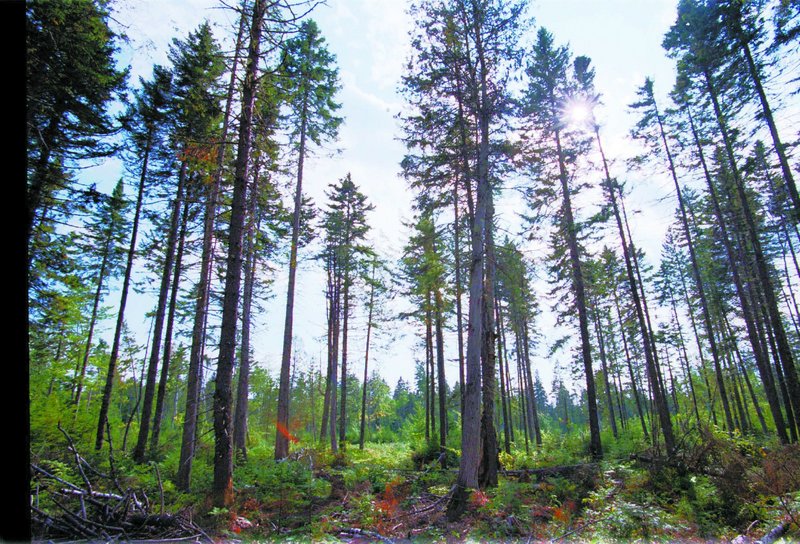AUGUSTA — Like wind spreading a forest fire, misinformation has been widely circulating in recent weeks about the biomass industry in Maine and around the country. These false assertions could potentially have dire implications for us here in Maine.
As recently as 2007, Maine generated approximately 24 percent of its electricity from biomass harvested from our sustainably managed forests (Maine Forest Service Inventory Analysis). In fact, a recent Maine Forest Service report indicates that even more biomass from the Maine woods may be available for use in energy production.
It is also is an industry that provides thousands of quality jobs for Maine people and an alternative to our dependence on foreign fossil fuels.
Maine’s forest products markets are fully integrated in that we have developed sustainable systems to utilize virtually every component of the trees we harvest. Saw-log quality timber is sent to mills for lumber, pulpwood quality logs are sent to mills to make paper, tree tops and limbs are sent to biomass energy facilities to produce fuel, and on and on.
This level of integration assures that the markets consume wood wisely and efficiently. Using a portion of the sustainable harvest for energy production in this integrated fashion is one of the best ways Maine and the nation can provide for its energy demands from renewable resources.
Most of the recent misinformation has been born from a study published by the Manomet Center for Conservation Sciences and the Environmental Working Group, which has ignited a flurry of misrepresentations by the press and environmental organizations. Most concerning, is the fact that many of these parties have concluded from these studies that “wood is worse than coal.”
Nothing could be further from the truth.
Even the authors of this study are crying foul about the misrepresentations of their work and in follow-up press releases have stated the Massachusetts study “cannot be readily applied to states where the biophysical characteristics of the forest, forest management practices, and energy sector differ significantly from Massachusetts.” That means Maine.
Given the fact that Maine’s forests are being sustainably managed as evidenced by Maine Forest Service findings and a tremendous increase in the third-party certification of forestland in recent history, we should find new ways to take advantage of the opportunities that biomass presents to us.
Granted, the issues surrounding biomass can be confusing, but environmental groups, government agencies and the media have a responsibility to the public, as well as about 1,000 Mainers who are employed by the biomass industry, to check their facts and provide a balanced view of the issue, before making false and potentially damaging claims about our biomass.
The calculations and science of carbon life-cycles is complex, confusing and full of questionable assumptions and therefore can be highly contentious. Our concerns with the Manomet report are focused less on its findings, and more on the interpretation and oversimplification it has led to, and will be led to, by others.
There should be no mistaking that the holistic value and benefits of a tree for various products, including its residues to fuel energy generation, far outweigh the carbon, economic and security aspects of fossil fuels.
It is important to understand that the carbon we “emit” into the air is not new carbon. It is carbon that is already a part of the environment, as opposed to carbon that is newly released into the environment when burning fossil fuels for energy.
Therefore, using wood residues for energy is a carbon-neutral activity because it does not release any new carbon into the air. The Environmental Protection Agency has never expressed disagreement on this point.
In fact, many credible organizations have come forward in support of the biomass industry as a clean energy source.
Organizations ranging from The Union of Concerned Scientists to the California Air Resources Board — known for being at the forefront of stringent environmental policy — all conclude that carbon benefits are unequivocally positive and dramatically lower than fossil fuels.
These organizations view the use of waste wood for biofuel as “biomass done right.”
Additionally, just last month 114 scientists sent a letter to House and Senate leaders expressing strong support for the vital role biomass plays in achieving the country’s renewable energy goals, how and why it is considered “carbon neutral,” and the climate and environmental impacts of burning fossil fuels.
It is critical to bear in mind that all energy generation sources have impacts, but renewable, indigenous, sustainably managed power such as biomass is undoubtedly part of the energy answer as we pursue a path toward securing our energy, environmental and economic futures.
Simply put, wood is good.
Send questions/comments to the editors.



Success. Please wait for the page to reload. If the page does not reload within 5 seconds, please refresh the page.
Enter your email and password to access comments.
Hi, to comment on stories you must . This profile is in addition to your subscription and website login.
Already have a commenting profile? .
Invalid username/password.
Please check your email to confirm and complete your registration.
Only subscribers are eligible to post comments. Please subscribe or login first for digital access. Here’s why.
Use the form below to reset your password. When you've submitted your account email, we will send an email with a reset code.